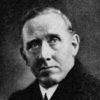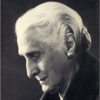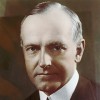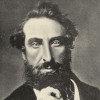A shrewd man has to arrange his interests in order of importance and deal with them one by one; but often our greed upsets this order and makes us run after so many things at once that through over-anxiety to have the trivial we miss the most important.
[Un habile homme doit régler le rang de ses intérêts et les conduire chacun dans son ordre. Notre avidité le trouble souvent en nous faisant courir à tant de choses à la fois que, pour désirer trop les moins importantes, on manque les plus considérables.]
François VI, duc de La Rochefoucauld (1613-1680) French epigrammatist, memoirist, noble
Réflexions ou sentences et maximes morales [Reflections; or Sentences and Moral Maxims], ¶66 (1665-1678) [tr. Tancock (1959)]
(Source)
Present in the first, 1665 edition in a slightly longer form:
Un habile homme doit savoir régler le rang de ses intérêts et les conduire chacun dans son ordre. Notre avidité le trouble souvent en nous faisant courir à tant de choses à la fois que, pour désirer trop les moins importantes, nous ne les faisons pas assez servir à obtenir les plus considérables.
(Source (French)). Alternate translations:
In this the prudent man is distinguishable from the imprudent, that he regulates his interests, and directs them to the prosecution of his designs each in their order. Our earnestness does many times raise a disturbance in them, by hurrying us after a hundred things at once. Thence it proceeds, that out of an excessive desire of the less important, we do not what is requisite for the attainment of the most considerable.
[tr. Davies (1669), ¶165]
A wise Man should order his Designs, and set all his Interests in their proper places. This Order is often disturbed by a foolish greediness, which, while it puts us upon pursuing several things at once, makes us eager for matters of less consideration; and while we grasp at trifles, we let go things of greater Value.
[tr. Stanhope (1694), ¶67]
An able man will arrange his interests, and conduct each in its proper order. Our greediness often hurts us, by making us prosecute so many things at once; by too earnestly desiring the less considerable, we lose the more important.
[pub. Donaldson (1783), ¶205; ed. Lepoittevin-Lacroix (1797), ¶65]
An able man will arrange his respective interests;, and conduct each in its proper order. Ambition is often injurious, by tempting us to prosecute too much at once. By earnestly desiring the less considerable, we lose the more important.
[ed. Carville (1835), ¶473]
A clever man should regulate his interests, and place them in proper order. Our avidity often deranges them by inducing us to undertake too many things at once; and by grasping at minor objects, we lose our hold of more important ones.
[ed. Gowens (1851), ¶67]
A clever man ought to so regulate his interests that each will fall in due order. Our greediness so often troubles us, making us run after so many things at the same time, that while we too eagerly look after the least we miss the greatest.
[tr. Bund/Friswell (1871)]
A wise man co-ordinates his interests, and develops them according to their merits. Cupidity defeats its own ends by following so many at once that in our greed for trifles we lose sight of important matters.
[tr. Heard (1917)]
A clever man will know how to range his interests, and will pursue each according to its merits. Our greed, however, will often confuse our method; for we run after so many things at once that we frequently miss what is of importance in pursuit of what is negligible.
[tr. FitzGibbon (1957)]
Clever men should arrange their desires in the proper order and seek each in turn. In our eagerness we often attempt too many things at once, and by striving too much after the small ones we lose the big.
[tr. Kronenberger (1959)]
A wise man ought to arrange his interests in their true order of importance. Our greed often disturbs this order by making us pursue so many things at once that, for too much desiring the least important, we miss those that are most so.
[tr. Whichello (2016)]
Quotations about:
self-control
Note not all quotations have been tagged, so Search may find additional quotes on this topic.
Imagination is a good servant, and a bad master.
Agatha Christie (1890-1976) English writer
The Mysterious Affair at Styles, ch. 5 [Poirot] (1916, pub. 1920)
(Source)
Poirot, chiding Hastings' unfounded speculations.
But the power
of a man’s will is often powerless:
laughter and tears follow so close upon
the passions that provoke them that the more
sincere the man, the less they obey his will.
[Ma non può tutto la virtù che vuole;
ché riso e pianto son tanto seguaci
a la passion di che ciascun si spicca,
che men seguon voler ne’ più veraci.]Dante Alighieri (1265-1321) Italian poet
The Divine Comedy [Divina Commedia], Book 2 “Purgatorio,” Canto 21, l. 105ff (21.105-108) (1314) [tr. Musa (1981)]
(Source)
(Source (Italian)). Alternate translations:
As each alternate Passion leaves a trace
On the still-varying muscles of the face,
Fictitious oft; but, by the candid mind,
Conceal'd with pain, the dawn of dubious joy
My features wore.
[tr. Boyd (1802), st. 20]
But the power which wills,
Bears not supreme control: laughter and tears
Follow so closely on the passion prompts them,
They wait not for the motions of the will
In natures most sincere.
[tr. Cary (1814)]
But will is not with power entire endued.
Laughter and tears pursue so much the trace
The passion dictates that imprints them there,
Nor follow will in natures most sincere.
[tr. Bannerman (1850)]
But yet the power that wills cannot do all things;
For tears and laughter are such pursuivants
Unto the passion from which each springs forth,
In the most truthful least the will they follow.
[tr. Longfellow (1867)]
But virtue cannot all it would; for laughter and tears follow so much the passion from which each springs, that they least obey will in the most truthful men.
[tr. Butler (1885)]
But all it wishes, will cannot forbear:
For smiles and tears to diverse passion wed,
Upon that passion follow so instinct.
In open natures, will is quite outsped.
[tr. Minchin (1885)]
But the power that wills cannot do everything; for smiles and tears are such followers on the emotion from which each springs, that in the most truthful they least follow the will.
[tr. Norton (1892)]
But the virtue which wills is not all powerful;
for laughter and tears follow so closely the passion from which each springs, that they least obey the will in the most truthful.
[tr. Okey (1901)]
But the power to will cannot do all, for laughter and tears are so close followers on the passions from which they spring that they least follow the will in the most truthful.
[tr. Sinclair (1939)]
But all is not done by the will's decree;
For on the passion wherefrom each is bred
Laughter and tears follow so close that least
In the most truthful is the will obeyed.
[tr. Binyon (1943)]
But will with us is not made one with power;
Tears, laughter, tread so hard upon the heel
Of their evoking passions, that in those
Who're most sincere they least obey the will.
[tr. Sayers (1955)]
But man's will
is not supreme in every circumstance:
for tears and laughter come so close behind
the passions they arise from, that they least
obey the will of the most honest mind.
[tr. Ciardi (1961)]
But the power that wills cannot do everything; for smiles and tears are such close followers on the emotion from which each springs, that in the most truthful they least follow the will.
[tr. Singleton (1973)]
But virtue cannot do everything that it will;
For laughter and tears follow so closely on
The passions from which they respectively proceed,
That they follow the will least in the most truthful.
[tr. Sisson (1981)]
And yet the power of the will cannot do all,
for tears and smiles are both so faithful to
the feelings that have prompted them that true
feeling escapes the will that would subdue.
[tr. Mandelbaum (1982)]
But the power of the will cannot do everything,
for laughter and weeping follow so closely on the passion from which each springs that they follow the will least in those who are most truthful.
[tr. Durling (2003)]
But the virtue that wills is not all-powerful, since laughter and tears follow the passion, from which they spring, so closely, that, in the most truthful, they obey the will least.
[tr. Kline (2002)]
But will power can't do everything it wills.
For tears and laughter follow on so close
to those emotions from which each act springs
that these least follow will in those most true.
[tr. Kirkpatrick (2007)]
But the power that wills cannot do all it wills,
for laughter and tears so closely follow feelings
from which they spring, they least can be controlled
in those who are most truthful.
[tr. Hollander/Hollander (2007)]
But will alone won't stop a human being,
Since laughter and tears are deeply interwoven,
Following hard on emotions which spring them forth,
And when they're truthful have little to do with the will.
[tr. Raffel (2010)]
LEAR: O, that way madness lies; let me shun that;
No more of that.William Shakespeare (1564-1616) English dramatist and poet
King Lear, Act 3, sc. 4, l. 24ff (3.4.24-25) (1606)
(Source)
Money was made, not to command our Will,
But all our lawful pleasures to fulfil.
Shame and Woe to us, if we our Wealth obey;
The Horse doth with the Horseman run away.Abraham Cowley (1618-1667) English poet and essayist
“Paraphrase upon the 10th Epistle of the First Book of Horace,” l. 75ff.
(Source)
Be at peace yourself. Then you will be able to bring peace to others.
[Pone te primus in pace, et tunc alios poteris pacificare.]
Thomas à Kempis (c. 1380-1471) German-Dutch priest, author
The Imitation of Christ [De Imitatione Christi], Book 2, ch. 3, v. 1 (2.3.1) (c. 1418-27) [tr. Rooney (1979)]
(Source)
(Source (Latin)). Alternate translations:
First put thyself in peace, and then mayest thou the better pacify others.
[tr. Whitford/Raynal (1530/1871)]
First put yourself at peace, and then you may the better make others be at peace.
[tr. Whitford/Gardiner (1530/1955)]
Be first of all at peace with thy selfe, then maist thou be better able to pacifie others.
[tr. Page (1639)]
Secure Peace at Home in the first place; and, when thy own Breast is thus composed, it will then be proper to Reconcile and make Peace among thy Neighbors.
[tr. Stanhope (1696; 1706 ed.)]
Thou must first secure the peace of thy own breast; before thou wilt be qualified to restore peace to others.
[tr. Payne (1803)]
First, keep thyself in peace, and then shalt thou be able to pacify others.
[ed. Parker (1841)]
Thou must first secure the peace of thy own breast ere thou be qualified to restore peace to others.
[tr. Dibdin (1851)]
First keep thyself in peace, and then thou wilt be able to bring others to peace.
[ed. Bagster (1860)]
First keep thyself in peace, and then shalt thou be able to be a peacemaker towards others.
[tr. Benham (1874)]
First keep thyself in peace, and then thou shalt be able to keep peace among others.
[tr. Anon. (1901)]
First keep peace with yourself; then you will be able to bring peace to others.
[tr. Croft/Bolton (1940)]
Keep yourself at peace first, and then you will be able to make others peaceful.
[tr. Daplyn (1952)]
Firstly, be peaceful yourself, and you will be able to bring peace to others.
[tr. Sherley-Price (1952)]
Peace in your own soul first of all, then you can think about making peace between other people.
[tr. Knox-Oakley (1959)]
Live in peace yourself and then you can bring peace to others.
[tr. Knott (1962)]
Keep yourself at peace first, and then you will be able to bring peace to others.
[tr. Creasy (1989)]
The wise man preserves a smooth-tempered self-control.
[πρὸς σοφοῦ γὰρ ἀνδρὸς ἀσκεῖν σώφρον᾽ εὐοργησίαν.]
Euripides (485?-406? BC) Greek tragic dramatist
Bacchæ [Βάκχαι], l. 641ff [Dionysus/Διόνυσος] (405 BC) [tr. Vellacott (1973)]
(Source)
An ironic statement from Dionysus, of how he will keep his calm and temper in the face of Pentheus' disrespectful fury. In very short order, Dionysus is (calmly) setting up Pentheus' self-destruction through the Bacchantes' frenzy.
(Source (Greek)). Alternate translations:
For it behoves the wise
To curb the sallies of outrageous ire.
[tr. Wodhull (1809)]
For it is the part of a wise man to practice restrained good temper.
[tr. Buckley (1850)]
’Tis easy to a wise man To practise self-command.
[tr. Milman (1865)]
For a wise man ever knoweth how to keep his passion down.
[tr. Rogers (1872)]
For ’tis a wise man’s way to school his temper into due control.
[tr. Coleridge (1891)]
For it is the wise man's part to rein his wrath in soberness.
[tr. Way (1898)]
For still are the ways of Wisdom, and her temper trembleth not!
[tr. Murray (1902)]
Wise men know constraint: our passions are controlled.
[tr. Arrowsmith (1960)]
For it is the quality of a wise man to exercise restrained good temper.
[tr. Kirk (1970)]
The secret of life is
Balance, tolerance.
[tr. Soyinka (1973)]
A wise man should practice pure thought and good temper.
[tr. Neuburg (1988)]
A wise man knows restraint. His strength is his detachment.
[tr. Cacoyannis (1982)]
For the wise know gentleness is wisdom.
[tr. Blessington (1993)]
For it is the part of a wise man to employ a controlled and gentle temper.
[tr. Esposito (1998)]
A wise man trains his temper to be good and calm.
[tr. Woodruff (1999)]
Because a man
Who is wise has self-control and gentleness of temper.
[tr. Gibbons/Segal (2000)]
It is a wise man's part to practice gentleness and self-control.
[tr. Kovacs (2002)]
He who would be wise will keep his self-control.
[tr. Teevan (2002)]
That is how wise people work, calmly.
[tr. Theodoridis (2005)]
A wise man is able to hold his good-nature well tempered.
[tr. Valerie (2005)]
After all, a wise man ought to keep his temper.
[tr. Johnston (2008)]
He should learn from me the ways of self-control.
[tr. Robertson (2014)]
Keep calm and carry on, as the wisest say.
[tr. Pauly (2019)]
The wise man has a reasonable temper.
[tr. Behr/Foster (2019)]
A sophos man must practice good temper that is moderate [sōphrōn].
[tr. Buckley/Sens/Nagy (2020)]
The art of conversation, or the qualification for a good companion, is a certain self-control, which now holds the subject, now lets it go, with a respect for the emergencies of the moment.
Ralph Waldo Emerson (1803-1882) American essayist, lecturer, poet
Journal (1854)
(Source)
Reprinted in Journals of Ralph Waldo Emerson, 1820–1872, Vol. 3 (1912).
If you want to go off by yourself and be a hermit, you can do whatever you want. But if you want interaction with other people, then by definition you have to buy into the social contract and restrain some of your behavior some of the time.
Judith Martin (b. 1938) American author, journalist, etiquette expert [a.k.a. Miss Manners]
“Polite Company,” interview by Hara Estroff Marano, Psychology Today (1998-03)
(Source)
I want to walk through life instead of being dragged through it.
Alanis Morissette (b. 1974) Canadian-American singer, songwriter, actress
Maverick Recording press release information, Jagged Little Pill album (Jun 1995)
(Source)
If we spent half an hour every day in silent immobility, I am convinced that we should conduct all our affairs, personal, national, and international, far more sanely than we do at present.
Bertrand Russell (1872-1970) English mathematician and philosopher
“The Decay of Meditation,” New York American (1931-11-04)
(Source)
Education is more than information, or skill, or propaganda. In each age education must take into account the conditions of that age. But the educated mind is not a mere creature of its own time. Education is emancipation from herd opinion, self-mastery, capacity for self-criticism, suspended judgment, and urbanity.
Everett Dean Martin (1880-1941) American educator, minister, writer, lecturer
The Meaning of a Liberal Education, Preface (1926)
(Source)
It is therefore not true that against nature there is neither rein nor master. On the contrary, there are two of them: one is good manners, the other reason.
[Non è adunque vero che incontro alla natura non abbia freno né maestro: anzi ve ne ha due, ché l’uno è il costume e l’altro è la ragione.]
Giovanni della Casa (1503-1556) Florentine poet, author, diplomat, bishop
Galateo: Or, A Treatise on Politeness and Delicacy of Manners [Il Galateo overo de’ costumi], ch. 25 (1558) [tr. Eisnbichler/Bartlett (1986)]
(Source)
(Source (Italian)). Alternate translations:
It is not then true, that there is not a bridell and Master for Nature, Nay, she is guided and ruled by twaine: Custome I meane, and Reason.
[tr. Peterson (1576)]
Which being so, it is not true, that we are not furnished with reins, or a proper guide against the impetuosity of our nature: for we have two; one of which is Experience, and the other right Reason.
[tr. Graves (1774)]
The gentleman admires rightness above all. A gentleman who possessed courage but lacked a sense of rightness would create political disorder, while a common person who possessed courage but lacked a sense of rightness would become a bandit.
[君子義以爲上、君子有勇而無義、爲亂、小人有勇而無義、爲盜]
[君子义以为上君子有勇而无义为乱小人有勇而无义为盗]Confucius (c. 551- c. 479 BC) Chinese philosopher, sage, politician [孔夫子 (Kǒng Fūzǐ, K'ung Fu-tzu, K'ung Fu Tse), 孔子 (Kǒngzǐ, Chungni), 孔丘 (Kǒng Qiū, K'ung Ch'iu)]
The Analects [論語, 论语, Lúnyǔ], Book 17, verse 23 (17.23) (6th C. BC – AD 3rd C.) [tr. Slingerland (2003)]
(Source)
When asked if a gentleman (junzi) values valor. Annping Chin's notes suggest that the two uses of junzi are different: the first, speaking in general of a moral person, the second of a person of high status (vs the person of low status, xiaoren) following).
(Source (Chinese) 1, 2). Alternate translations:
The superior man holds righteousness to be of highest importance. A man in a superior situation, having valour without righteousness, will be guilty of insubordination; one of the lower people having valour without righteousness, will commit robbery.
[tr. Legge (1861)]
Righteousness he counts higher. A gentleman who is brave without being just may become turbulent; while a common person who is brave and not just may end in becoming a highwayman.
[tr. Jennings (1895)]
A gentleman esteems what is right as of the highest importance. A gentleman who has valour, but is without a knowledge and love of what is right, is likely to commit a crime. A man of the people who has courage, but is without the knowledge and love of what is right, is likely to become a robber.
[tr. Ku Hung-Ming (1898)]
Men of the superior class deem rectitude the highest thing. It is men of the superior class, with courage but without rectitude, who rebel. It is men of the lower class, with courage but without rectitude, who become robbers.
[tr. Soothill (1910)]
The proper man puts equity at the top, if a gentleman have courage without equity it will make a mess; if a mean man have courage without equity he will steal.
[tr. Pound (1933)]
A gentleman gives the first place to Right. If a gentleman has courage but neglects Right, he becomes turbulent. If a small man has courage but neglects Right, he becomes a thief.
[tr. Waley (1938)]
The perfect gentleman is given to justice and assigns to it first place. If the perfect gentleman possesses courage but not justice, there will be disorders. In the case of the mean man, there will be burglaries.
[tr. Ware (1950), 17.21]
For the gentleman it is morality that is supreme. Possessed of courage but devoid of morality, a gentleman will make trouble while a small man will be a brigand.
[tr. Lau (1979)]
Rightness the gentleman regards as paramount; for if a gentleman has courage but lacks a sense of right and wrong, he will cause political chaos; and if a small man has courage but lacks a sense of right and wrong, he will commit burglary.
[tr. Dawson (1993), 17.21]
A gentleman puts justice above everything. A gentleman who is brave but not just may become a rebel; a vulgar man who is brave but not just may become a bandit.
[tr. Leys (1997)]
The gentleman regards righteousness as supreme. A gentleman who possesses courage but wants righteousness will become rebel; a small man who possesses courage but wants righteousness will become a bandit. [tr. Huang (1997), 17.22]A gentleman stresses the righteousness as a top rule. If a gentleman has the braveness but no righteousness, will be disordered. If a mean person has the braveness but no righteousness, will be a robber.
[tr. Cai/Yu (1998), No. 463]
In fact, the exemplary person gives first priority to appropriate conduct (yi). An exemplary person who is bold yet is lacking a sense of appropriateness will be unruly, while a petty person of the same cut will be a thief.
[tr. Ames/Rosemont (1998)]
With the gentleman, right comes before all else. If a gentleman has courage but lacks a sense of right, he will make a rebellion. If a little man has courage but lacks a sense of right, he will become a thief.
[tr. Brooks/Brooks (1998), 17:21]
The noble-minded honor Duty above all. In the noble-minded, courage without Duty leads to turmoil. In little people, courage without Duty leads to theft and robbery.
[tr. Hinton (1998), 17.22]
The gentleman holds rightness in highest esteem. A gentleman who possesses courage but lacks rightness will become rebellious. A petty man who possesses courage but lacks rightness will turn to thievery.
[tr. Watson (2007)]
The gentleman (junzi) puts rightness at the top. If a man of high status (junzi) has courage but not a sense of rightness, he will create political upheaval. If a lowly man has courage but not a sense of rightness, he will turn to banditry.
[tr. Annping Chin (2014)]
A Jun Zi's top objective is righteousness. If a Jun Zi has valor but acts against righteousness, he is prone to make trouble. If a Xiao Ren has valor but acts against righteousness, he is prone to commit crimes.
[tr. Li (2020)]
Self-control seldom leads astray.
[以約、失之者鮮矣。]
Confucius (c. 551- c. 479 BC) Chinese philosopher, sage, politician [孔夫子 (Kǒng Fūzǐ, K'ung Fu-tzu, K'ung Fu Tse), 孔子 (Kǒngzǐ, Chungni), 孔丘 (Kǒng Qiū, K'ung Ch'iu)]
The Analects [論語, 论语, Lúnyǔ], Book 4, verse 23 (4.23) (6th C. BC – AD 3rd C.) [tr. Leys (1997)]
(Source)
(Source (Chinese)). Alternate translations:
The cautious seldom err.
[tr. Legge (1861)]
Those who keep within restraints are seldom losers.
[tr. Jennings (1895)]
He who wants little seldom goes wrong.
[tr. Ku Hung-Ming (1898); alternate: "He who confines his sphere ..."]
The self-restrained seldom err.
[tr. Soothill (1910)]
Self-restraint avoids error.
[tr. Soothill (1910), alternate]
Those who have gone astray through self-restraint are few.
[tr. Soothill (1910), alternate]
Those who consume their own smoke seldom get lost. The concise seldom err.
[tr. Pound (1933)]
Those who err on the side of strictness are few indeed!
[tr. Waley (1938)]
When strict with oneself one rarely fails.
[tr. Ware (1950)]
It is rare for a man to miss the mark through holding on to essentials.
[tr. Lau (1979)]
There are few indeed who fail in something through exercising restraint.
[tr. Dawson (1993)]
Those who err through self-restraint are rare indeed.
[tr. Huang (1997)]
The persons who lose because of restraining themselves, are few.
[tr. Cai/Yu (1998), #89]
It is rare indeed for someone to go wrong due to personal restraint. [tr. Ames/Rosemont (1998)]
Those who err on the side of strictness are few.
[tr. Brooks/Brooks (1998)]
To lose by caution is rare indeed.
[tr. Hinton (1998)]
Very few go astray who comport themselves with restraint.
[tr. Slingerland (2003)]
Those who go wrong by holding back are few.
[tr. Watson (2007)]
Few are those who make mistakes by knowing to hold back.
[tr. Annping Chin (2014)]
If you practice self-control according to the rules of Li, you will make fewer mistakes.
[tr. Li (2020)]
Love, you tyrant!
To what extremes won’t you compel our hearts?[Improbe Amor, quid non mortalia pectora cogis!]
Virgil (70-19 BC) Roman poet [b. Publius Vergilius Maro; also Vergil]
The Aeneid [Ænē̆is], Book 4, l. 412 (4.412) (29-19 BC) [tr. Fagles (2006), ll. 518-19]
(Source)
(Source (Latin)). Alternate translations:
Impious love,
What canst not thou compell in mortall brests?
[tr. Ogilby (1649)]
All-pow'rful Love! what changes canst thou cause
In human hearts, subjected to thy laws!
[tr. Dryden (1697)]
Unrelenting love, how irresistible is they sway over the minds of mortals!
[tr. Davidson/Buckley (1854)]
Curst love! what lengths of tyrant scorn
Wreak'st not on those of woman born?
[tr. Conington (1866)]
Accursèd power of love, what mortal hearts
Dost thou not force to obey thee!
[tr. Cranch (1872), ll. 544-45]
Injurious Love, to what dost thou not compel mortal hearts!
[tr. Mackail (1885)]
O evil Love, where wilt thou not drive on a mortal breast?
[tr. Morris (1900)]
O tyrant love, so potent to subdue!
[tr. Taylor (1907), st. 53, l. 473]
Relentless Love,
to what mad courses may not mortal hearts
by thee be driven?
[tr. Williams (1910), l. 409ff]
O tyrant Love, to what dost thou not drive the hearts of men!
[tr. Fairclough (1916)]
There is nothing to which the hearts of men and women
Cannot be driven by love.
[tr. Humphries (1951)]
Excess of love, to what lengths you drive our human hearts!
[tr. Day Lewis (1952)]
Voracious Love, to what do you not drive
the hearts of men?
[tr. Mandelbaum (1971), ll. 566-67]
Unconscionable Love,
To what extremes will you not drive our hearts!
[tr. Fitzgerald (1981), ll. 571-72]
Love is a cruel master. There are no lengths to which it does not force the human heart.
[tr. West (1990)]
Cruel Love, to what do you not drive the human heart? [tr. Kline (2002)]Cruel Love, what do you not force human hearts to bear?
[tr. Lombardo (2005)]
Cursed love, you make us stoop to anything.
[tr. Bartsch (2021)]
PROTEUS: ’Tis true. O heaven, were man
But constant, he were perfect; that one error
Fills him with faults, makes him run through all th’ sins;
Inconstancy falls off ere it begins.
Try to remember this: what you project
Is what you will perceive; what you perceive
With any passion, be it love or terror,
May take on whims and powers of its own.
The first thing to do when you are upset is to notice that you are. You begin by mastering your emotions and determining not to go any further. With this superior sort of caution you can put a quick end to your anger.
[El primer paso del apasionarse es advertir que se apasiona, que es entrar con señorío del afecto, tanteando la necesidad hasta tal punto de enojo, y no más. Con esta superior refleja entre y salga en una ira.]
Baltasar Gracián y Morales (1601-1658) Spanish Jesuit priest, writer, philosopher
The Art of Worldly Wisdom [Oráculo Manual y Arte de Prudencia], § 155 (1647) [tr. Maurer (1992)]
(Source)
(Source (Spanish)). Alternate translation:
The first step towards getting into a passion is to announce that you are in a passion. By this means you begin the conflict with command over your temper, for one has to regulate one's passion to the exact point that is necessary and no further. This is the art of arts in falling into and getting out of a rage.
[tr. Jacobs (1892)]
I can resist everything except temptation.
Oscar Wilde (1854-1900) Irish poet, wit, dramatist
Lady Windermere’s Fan, Act 1 [Lord Darlington] (1893)
(Source)
Also attributed to Mark Twain, Mae West, and W. C. Fields. The sentiment may not be original to Wilde, but his use popularized it.
There are many people who can exercise virtue in their own affairs, but are unable to do so in their relations with others. This is why the aphorism of Bias, “Office will reveal the man”, seems a good one, since an official is, by virtue of his position, engaged with other people and the community at large.
[πολλοὶ γὰρ ἐν μὲν τοῖς οἰκείοις τῇ ἀρετῇ δύνανται χρῆσθαι, ἐν δὲ τοῖς πρὸς ἕτερον ἀδυνατοῦσιν. καὶ διὰ τοῦτο εὖ δοκεῖ ἔχειν τὸ τοῦ Βίαντος, ὅτι ἀρχὴ ἄνδρα δείξει: πρὸς ἕτερον γὰρ καὶ ἐν κοινωνίᾳ ἤδη ὁ ἄρχων.]
Aristotle (384-322 BC) Greek philosopher
Nicomachean Ethics [Ἠθικὰ Νικομάχεια], Book 5, ch. 1 (5.1.15-16) / 1129b.33ff (c. 325 BC) [tr. Crisp (2000)]
(Source)
(Source (Greek)). Alternate translations:
I mean, there are many who can practise virtue in the regulation of their own personal conduct who are wholly unable to do it in transactions with their neighbour. And for this reason that saying of Bias is thought to be a good one, “Rule will show what a man is;” for he who bears Rule is necessarily in contact with others, i.e., in a community.
[tr. Chase (1847), ch. 2]
For many there be who can make good use of their virtue in their own matters, but not towards their fellow-man. And, hence, Bias would seem to have said well, saying that, "It is authority that shows the man." For whosoever is in authority stands ipso facto in relation to his fellow-man, in that he is a fellow-member of the body politic.
[tr. Williams (1869)]
For there are many people who are capable of exhibiting virtue at home, but incapable of exhibiting it in relation to their neighbors. Accordingly there seems to be good sense in saying of Bias that "office will reveal a man," for one who is in office is at once brought into relation and association with others.
[tr. Welldon (1892)]
For there are many who can be virtuous enough at home, but fail in dealing with their neighbours. This is the reason why people commend the saying of Bias, “Office will show the man;” for he that is in office ipso facto stands in relation to others, and has dealings with them.
[tr. Peters (1893)]
For many men can exercise virtue in their own affairs, but not in their relations to their neighbour. This is why the saying of Bias is thought to be true, that "rule will show the man"; for a ruler is necessarily in relation to other men and a member of a society.
[tr. Ross (1908)]
For there are many who can practise virtue in their own private affairs but cannot do so in their relations with another. This is why we approve the saying of Bias, "Office will show a man"; for in office one is brought into relation with others and becomes a member of a community.
[tr. Rackham (1934)]
For many people are able to use their virtue in what properly belongs to themselves, but unable to do so in issues relating to another person. And this is why Bias' saying, "ruling office shows forth the man," seems good, since a ruler is automatically in relation to another person and in a community with him.
[tr. Reeve (1948)]
I say this because there are plenty of people who can behave uprightly in their own affairs, but are incapable of doing so in relation to somebody else. That is why Bias's saying "Office will reveal the man" is felt to be valid; because an official is eo ipso in relation to, and associated with, somebody else.
[tr. Thomson/Tredennick (1976)]
For many people are able to use virtue in dealing with the members of their household, but in their affairs together regarding another, they are unable to do so. And on this account, the saying of Bias seems good, that "office will show the man." For he who rules is already in relation to another and within the community.
[tr. Bartlett/Collins (2011)]
That person, then, whose mind is quiet through consistency and self-control, who finds contentment in himself, and neither breaks down in adversity nor crumbles in fright, nor burns with any thirsty need nor dissolves into wild and futile excitement, that person is the wise one we are seeking, and that person is happy.
[Ergo hic, quisquis est, qui moderatione et constantia quietus animo est sibique ipse placatus, ut nec tabescat molestiis nec frangatur timore nec sitienter quid expetens ardeat desiderio nec alacritate futtili gestiens deliquescat, is est sapiens quem quaerimus, is est beatus.]
Marcus Tullius Cicero (106-43 BC) Roman orator, statesman, philosopher
Tusculan Disputations [Tusculanae Disputationes], Book 4, ch. 17 (4.17) / sec. 37 (45 BC) [tr. Graver (2002)]
(Source)
(Source (Latin)). Alternate translations:
He therefore, call him by what name you will, who through Moderation and Constancy, hath quiet of mind, and is at Peace with himself; so as neither to fret out of Discontent, nor to be confounded with Fear, who neither is inflam'd with an impatient longing after any thing, nor ravish'd out of himself into the Fools Paradice of an empty Mirth; this is the wise man, after whom we are in quest; this the Happy man.
[tr. Wase (1643)]
Whoever then, through moderation and consistency, is at rest in his mind, and in calm possession of himself, so as neither to pine with care, nor be dejected with fear, neither to be inflamed with desire, nor dissolved by extravagant joy, such a one is the very wise man we enquire after, the happy man.
[tr. Main (1824)]
Therefore the man, whoever he is, who has quiet of mind, through moderation and constancy, and thus at peace with himself, is neither corroded with cares, nor crippled by fear; and, thirsting for nothing impatiently, is exempt from the fires of desire, and, dizzied by the fumes of no futile felicity, reels with no riotous joy: this is the wise man we seek: this man is happy.
[tr. Otis (1839)]
Whoever, then, through moderation and constancy, is at rest in his mind, and in calm possession of himself, so as neither to pine with care, nor be dejected with fear, nor to be inflamed with desire, coveting something greedily, nor relaxed by extravagant mirth, -- such a man is that identical wise man whom we are inquiring for, he is the happy man.
[tr. Yonge (1853)]
Whoever then has his mind kept in repose by moderation and firmness, and is at peace with himself so that he is neither wasted by troubles nor broken down by fear, nor burns with longing in his thirsty quest of some object of desire, nor flows out in the demonstration of empty joy, is the wise man whom we seek; he is the happy man.
[tr. Peabody (1886)]
We therefore say once more that a strong mind is not one that is merely capable of strong emotions, but one that under stress of the strongest emotions keeps its balance, so that in spite for the storms within the breast, judgment and conviction can act with perfect freedom, like the needle of the compass on a storm-tossed ship.
[Wir sagen es also noch einmal: Ein starkes Gemüth ist nicht ein solches, welches bloss starker Regungen fähig ist, sondern dasjenige, welches bei den stärksten Regungen im Gleichgewicht bleibt, so dass trotz den Stürmen in der Brust der Einsicht und Ueberzeugung wie der Nadel des Kompasses auf dem sturmbewegten Schiff das feinste Spiel gestattet ist.]
Karl von Clausewitz (1780-1831) Prussian soldier, historian, military theorist
On War [Vom Kriege], Book 1, ch. 3 “On Military Genius [Der Kriegerische Genius],” (1.3) (1832) [tr. Jolles (1943)]
(Source)
(Source (German)). Alternate translations:
We, therefore, say once more a strong mind is not one that is merely susceptible of strong excitement, but one which can maintain its serenity under the most powerful excitement; so that, in spite of the storm in the breast, the perception and judgment can act with perfect freedom, like the needle of the compass in the storm-tossed ship.
[tr. Graham (1873)]
We repeat: strength of character does not consist solely in having powerful feelings, but in maintaining one’s balance in spite of them. Even with the violence of emotion, judgment and principle must still function like a ship’s compass, which records the slightest variations however rough the sea.
[tr. Howard & Paret (1976)]
Just as most soldiers believe bullets will hit only others, not themselves, most citizens like to think that their own minds and thought processes are invulnerable. “Other people can be manipulated, but not me,” they declare. People like to think that their opinions, values and ideas are inviolate and totally self-regulated. They may admit grudgingly that they are influenced slightly by advertising. Beyond that, they want to preserve a myth in which other persons are weak-minded and easily influenced, but they are strong-minded.
Margaret Singer (1921-2003) American clinical psychologist and researcher
“The ‘Not Me’ Myth: Orwell and the Mind,” Idea (19 Jan 1996)
(Source)
The world belongs to the enthusiast who keeps cool.
I must learn to love the fool in me, the one who feels too much, talks too much, takes too many chances, wins sometimes and loses often, lacks self-control, loves and hates, hurts and gets hurt, promises and breaks promises, laughs and cries. It alone protects me against that utterly self-controlled, masterful tyrant whom I also harbor and who would rob me of human aliveness, humility, and dignity, but for my fool.
From the simple observation that mental illness is marked by odd behavior flows a host of problems. For nothing seems clearer than that we are responsible for our behavior; from there, it seems only a small step to the conclusion that a disease characterized by strange behavior must be a disease under our control. And so we appeal to willpower in the devout belief that we can think our way to mental health. We advise the victim of depression to look on the bright side; we tell the person in the midst of a sky-high manic episode to take a deep breath and calm down. When it comes to mental illness, we are all Christian Scientists.
Age is truly a time of heroic helplessness. One is confronted by one’s own incorrigibility. I am always saying to myself, “Look at you, and after a lifetime of trying.” I still have the vices that I have known and struggled with — well it seems like since birth. Many of them are modified, but not much. I can neither order nor command the hubbub of my mind.
Florida Scott-Maxwell (1883-1979) American-British playwright, author, psychologist
The Measure of My Days (1968)
(Source)
For nothing is more blamefull to a Knight,
That court’sie doth as well as armes professe,
However strong and fortunate in fight,
Then the reproch of pride and cruelnesse:
In vain he seeketh others to suppresse,
Who hath not learned himself first to subdue:
All flesh is frayle and full of ficklenesse,
Subject to fortunes chance, still chaunging new;
What haps to-day to me to-morrow may to you.Edmund Spenser (c. 1552-1599) English poet
The Faerie Queene, Book 6, canto 1, st. 41 (1590-96)
(Source)
If you can’t change your fate, change your attitude.
For my own part, I consider the best and most finished type of man to be the person who is always ready to make allowances for others, on the ground that never a day passes without his being in fault himself, yet who keeps as clear of faults as if he never pardoned them in others.
[Atque ego optimum et emendatissimum existimo, qui ceteris ita ignoscit, tamquam ipse cotidie peccet, ita peccatis abstinet tamquam nemini ignoscat.]
Pliny the Younger (c. 61-c. 113) Roman politician, writer [Gaius Plinius Caecilius Secundus]
Epistles [Epistulae], Book 8, Letter 22 “To Geminus” [tr. J.B.Firth (1900)]
(Source)
Alt. trans.: "The highest of characters, in my estimation, is his, who is as ready to pardon the moral errors of mankind, as if he were every day guilty of some himself; and at the same time as cautious of committing a fault as if he never forgave one."
To ensure moral salvation, it is primarily necessary to depend on oneself, because in the moment of peril we are alone. And strength is not to be acquired instantaneously. He who knows that he will have to fight, prepares himself for boxing and dueling by strength and skill; he does not sit still with folded hands.
All of your scholarship, all your study of Shakespeare and Wordsworth would be vain if at the same time you did not build your character and attain mastery over your thoughts and your actions.
Emotion, whether of ridicule, anger, or sorrow, — whether raised at a puppet show, a funeral, or a battle, — is your grandest of levelers. The man who would be always superior should be always apathetic.
I would permit no man, no matter what his colour might be, to narrow and degrade my soul by making me hate him.
Booker T. Washington (1856-1915) American educator, writer
Up from Slavery, ch. 11 (1901)
(Source)
This has been paraphrased in various ways, and is the source of Martin Luther King, Jr's quote he attributed to Washington: "Let no man pull you so low as to make you hate him" (e.g., Stride Toward Freedom, ch. 6 (1958)). King used this or variants of this paraphrase frequently in his speeches, though it was only in his early activism that he referenced Washington by name.
He is the true conqueror of pleasure, who can make use of it without being carried away by it, not he who abstains from it altogether.
Aristippus of Cyrene (c. 435 – c. 356 BC) Cyrenaic philosopher, Hedonist
Fragment 53
(Source)
Alt. trans.:
- "The one to master pleasure is not he who abstains but he who employs it without being carried away by it -- just as being a master of a ship or of a horse is not abstaining from using them, but directing them where one wishes." (Fragment 55 Mannebach) (Stob. Ecl. 3.17 17
- "The master of pleasure is not he who abstains from it, but he who uses it without being carried away by it."
Democracy requires both discipline and hard work. It is not easy for individuals to govern themselves. … It is one thing to gain freedom, but no one can give you the right to self-government. This you must earn for yourself by long discipline.
If there be, in any region of the universe, an order of moral agents living in society, whose reason is strong, whose passions and inclinations are moderate, and whose dispositions are turned to virtue, to such an order of happy beings, legislation, administration, and police, with the endlessly various and complicated apparatus of politics, must be in a great measure superfluous.
James Burgh (1714-1775) British politician and writer
Political Disquisitions, Book 1 “Of Government, briefly,” ch. 1 “Government by Laws and Sanctions, why necessary” (1774)
(Source)
Whenever you feel a warmth of temper rising, check it at once, and suppress it, recollecting it will make you unhappy within yourself, and disliked by others. Nothing gives one person so great advantage over another, as to remain always cool and unruffled under all circumstances.
Thomas Jefferson (1743-1826) American political philosopher, polymath, statesman, US President (1801-09)
Letter to Francis Eppes (21 May 1816)
(Source)
Often updated as "Nothing gives one person so much advantage over another as to remain always cool and unruffled under all circumstances."
Most people are like a falling leaf that drifts and turns in the air, flutters, and falls to the ground. But a few others are like stars which travel one defined path: no wind reaches them, they have within themselves their guide and path.
Discipline should not be practiced like a rule imposed on oneself from the outside, but that it becomes an expression of one’s own will; that it is felt as pleasant, and that one slowly accustoms oneself to a kind of behavior which one would eventually miss, if one stopped practicing it.
Further, a little self-control at the right moment may prevent much subsequent compulsion at the hands of others.
[Daß jedoch ein kleiner, an der rechten Stelle angebrachter Selbstzwang nachmals vielem Zwange von außen vorbeugt.]
Arthur Schopenhauer (1788-1860) German philosopher
Parerga and Paralipomena, Vol. 1, “Aphorisms on the Wisdom of Life [Aphorismen zur Lebensweisheit],” ch. 5 “Counsels and Maxims [Paränesen und Maximen],” § 2.15 (1851) [tr. Saunders (1890)]
(Source)
Source (German). Alternate translation:
Nevertheless, a little self-restraint applied at the right place afterwards prevents much restraint from without.
[tr. Payne (1974), 2.15]
If you would not be of an angry temper, then, do not feed the habit. Give it nothing to help it increase. Be quiet at first and reckon the days in which you have not been angry. I used to be angry every day; now every other day; then every third and fourth day; and if you miss it so long as thirty days, offer a of Thanksgiving to God. For habit is first weakened and then entirely destroyed.
A man makes his inferiors his superiors by heat. […] Self-control is the rule.
Ralph Waldo Emerson (1803-1882) American essayist, lecturer, poet
“Social Aims,” lecture, Boston (1864-12-04), Letters and Social Aims (1875)
(Source)




















































